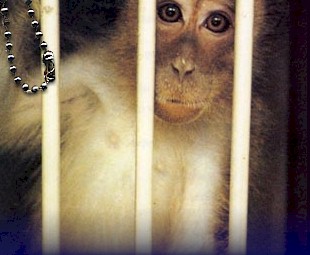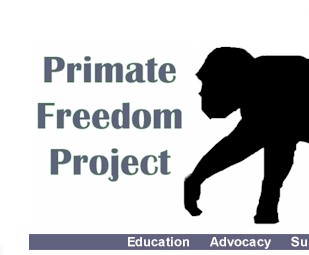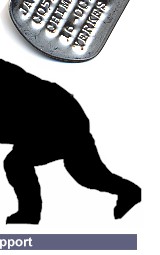






|
||||||||||||||||||||||||||||||||||||||||||||||||||||||||||||||||||||||||||||||||||||||||||||||||||||||||||||||||||||||||||||||||||||||||||||||||||||||||||||||||||||||||||||||||||||||||||||||||||||||||||||||||||||||||||||||||||||||||||||||||||||||
SSC
23993 Female squirrel monkey 23993 was
acquired by the California Regional Primate Re-search Center,
at the University of California, Davis, on March 17, 1988. She
was estimated to be 4 years old. She had been captured from the
wild. Wild squirrel monkeys live in highly
social family groups. Group sizes range from twenty to forty individuals.
The groups have matrilineage hierarchies with the females remaining
in their groups throughout their lives. The females form the core
of a group and work cooperatively to dominate the males. Groups
have ranges that vary in size, but can reach a few hundred acres.
They form associations with other species such as capuchins and
uacaris. Their forested homes are complex environments and interactions
with other monkeys and various other animals are common as they
forage for food and explore and socialize. Squirrel monkeys have
a vocabulary of at least twenty different calls. We can only wonder what 23993 experienced
after she was captured and eventually shipped to California, but
upon arrival, we know that she was placed in quarantine, chemically
immobilized three times in three weeks for various examinations
and tattooed with her serial number. She was reportedly in “good
condition” but “thin”. She had apparently been jailed with
another monkey during quarantine, because a notation
was made in her records on April 18, 1988, that she had been
referred for depression. The note explains that her “cagemate”
had been taken away. The note reads: “I brought it a new
cagemate this morning. (SSC 23990 from cage 2).” Over the eleven-year period that
23993 was held captive at Davis, she had four children: two girls,
one boy, and one other whose gender is unknown. Records show that
she was chemically restrained on at least thirty-four occasions.
She had blood drawn on at least ten occasions and was tattooed
twice. She was moved to a different cage thirteen times. She was
once injured severely enough by another monkey as to require sutures
to her face. 23993 was used in at least four studies
at Davis, and in this regard, she was somewhat lucky since these
studies appear to have been observational in nature. The first
cannot be dated due to the poor quality of the documentation.
No project name is associated with it. What can be gleaned is
the fact that 23993 had been given a name; she was now being referred
to as Athena. Athena was one of thirty-two squirrel moneys used
in this study. In 1995, Athena and her daughter
Aileen (SSC 28562, DOB 9-10-94) were used in a study titled: Mother-Infant-Other
Study – MIO ’95. From the records:
Twenty-nine squirrel monkeys are
listed and sorted into seven groups. Of the twenty-nine monkeys,
twenty-one are listed as adults, six as juveniles (including Aileen),
and two as infants. The second study is: Saimiri Vocal
Development Study: SVD ’95-97. The scientific name for
squirrel monkeys is Samiri sciureus, thus, the study’s
title. Athena and Aileen were again used as subjects. Thirteen
monkeys were used including five who were pregnant.
The last study Athena was used in,
for which records are available, was: Ssc Vocal Development Study.
The records are very sparse, but 26 monkeys were used. The study
ran from April through July of 1998. The stated purpose was: “To
acoustically record the juvenile squirrel monkeys for a study
on the role of learning in chuck call development.” Athena
and Aileen were both included along with Athena’s son,
Adam (SSC 29843, DOB 8-15-96). On February 2, 1999, Athena was shipped
to Vanderbilt University in Nashville, Tennessee. The research
she was used in there is unknown, but what is known is that during
1999 and 2000, scientists at Vanderbilt used monkeys of undisclosed
species in highly invasive brain, eye, and motor nerve experiments.
We are aware of no primate experimentation occurring during this
time span at Vanderbilt that was not cruel and eventually terminal. View the lab reports for 23993 here.
Home Page | Our Mission | News |